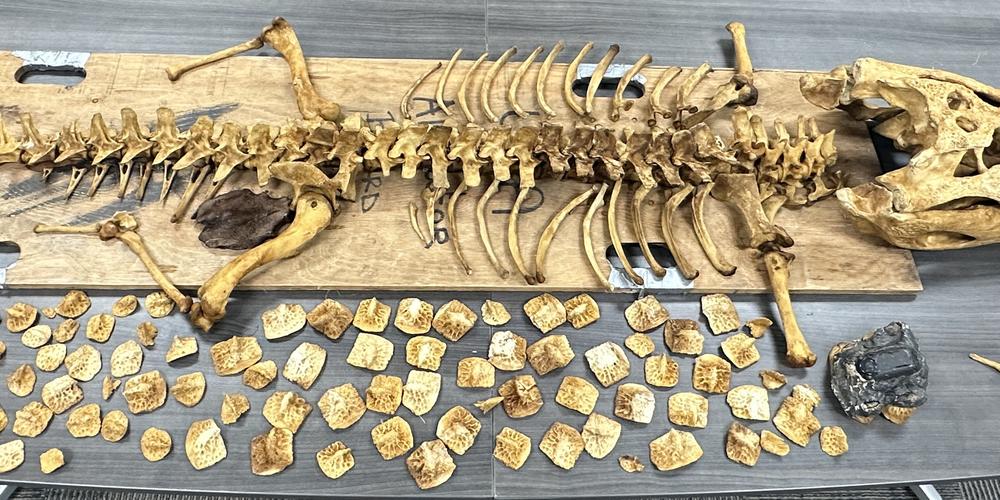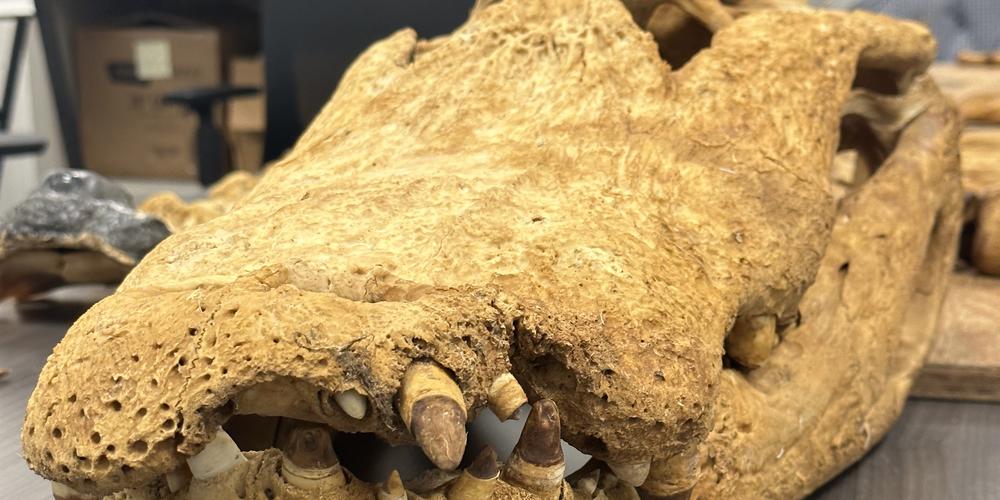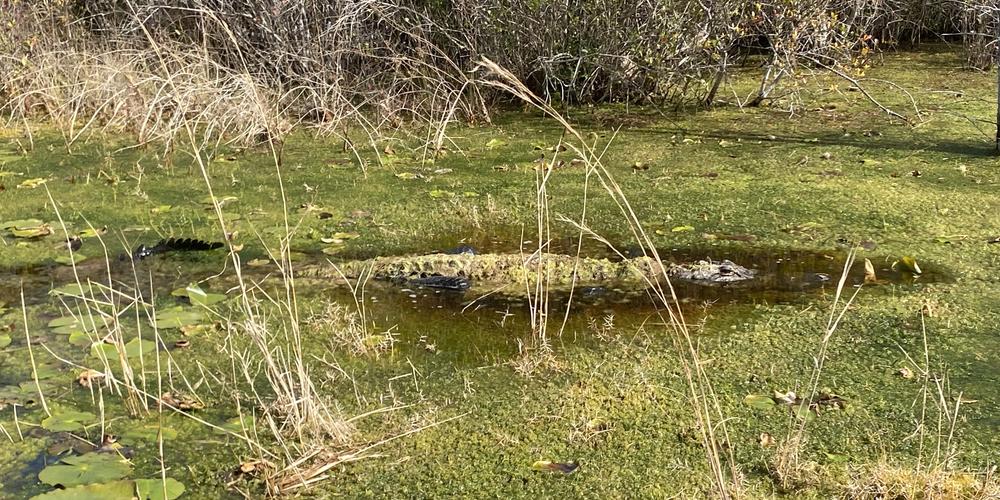
Caption
Doc's skeleton. The 11-foot alligator's remains were recently recovered by researchers with the UGA Marine Extension and Georgia Sea Grant.
Credit: UGA Marine Extension and Georgia Sea Grant

Caption
Doc's skull. 60% of the alligator's skeleton was found after Mark Hoog, a researcher with UGA Marine Extension and Georgia Sea Grant, accidentally kicked Doc's skull while searching for his remains in the water.
Credit: UGA Marine Extension and Georgia Sea Grant

Caption
Doc covered in weeds. Researchers incorporated the alligator into a satellite tag study in April 2021. They stopped receiving location points from Doc in August 2022. A few months later researchers found Doc’s skeleton more than 14 miles into the Okefenokee Swamp.
Credit: Researcher, University of Georgia Marine Extension and Georgia Sea Grant

